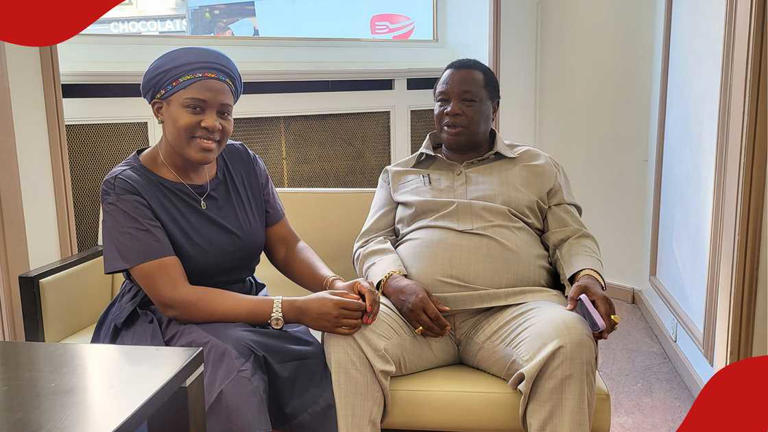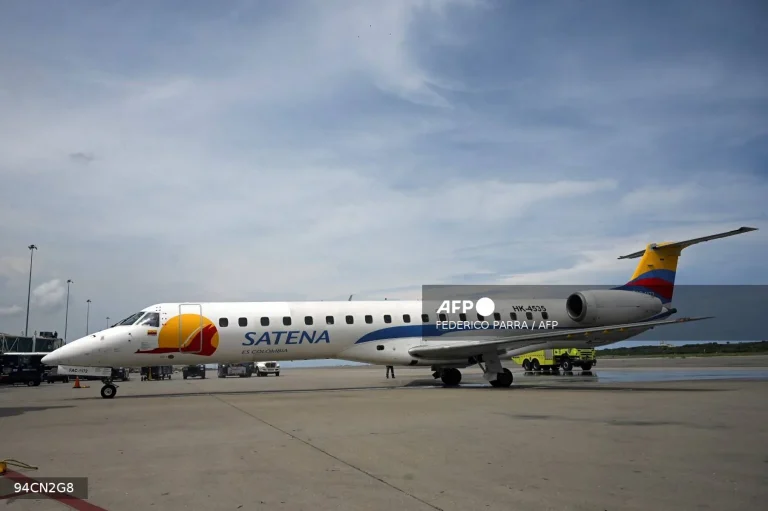By JEFF SELDIN
The United States and its Western allies are being forced to confront a grim reality in Africa where years of work to blunt the spread of terrorism, whether inspired by al-Qaida, the Islamic State or local groups, has fallen short, and could soon be eclipsed by the need to focus on adversaries like China and Russia.
“Despite all of our best efforts this terrorism continues to spread,” the commander of U.S. forces in Africa, General Stephen Townsend, told a virtual defense forum Tuesday.
“The spread of terrorism has continued relatively unabated,” Townsend added, noting the fate of future efforts could depend on the U.S. Defense Department’s ongoing force posture review, which will determine whether his command will get more troops or resources or be asked to find ways to do more with less.
This is not the first time Townsend has called attention to Washington’s struggles to prevent the expansion of terrorist groups and ideologies across Africa.
The U.S. general sounded the alarm last year, telling lawmakers, “Western and international and African efforts there are not getting the job done … ISIS and al-Qaida are on the march.”
Around the same time, U.S. Africa Command began changing its language when talking about terror groups in Africa, speaking of “containing” rather than “degrading” them.
This past November, the Pentagon’s inspector general was equally blunt in its final report on U.S. counterterrorism operations in Africa, warning that key terror groups, like the al-Qaida-linked al-Shabab in Somalia and various affiliates of the Islamic State terror group, also known as ISIS or IS, were maintaining their strength if not growing.
However, Townsend’s latest assessment comes just a day after the 83-member Global Coalition to Defeat ISIS announced its intent to form an Africa task force to push back against the terror group’s expansion on the continent.
It also comes as U.S. military leaders wait for the results of a force posture review, initiated by the administration of President Joe Biden, to determine how Washington can best allocate troops and resources as it focuses more on the dangers posed by the growing great power competition with China and Russia.
Earlier this month, U.S. Defense Secretary Lloyd Austin told lawmakers he would not predict when the review would be complete, but he assured them that the focus “will be to make sure that whether it’s in Somalia or some other place in the world, that terrorists don’t have the ability to threaten our homeland.”
Ongoing US force posture review-“I won’t predict when we’ll complete that work” per @SecDef Austin
“The focus will be to make sure that whether its in #Somalia or some other place in the world that terrorists don’t have the ability to threaten our homeland” he adds
— Jeff Seldin (@jseldin) June 17, 2021
Somalia
Somalia-based al-Shabab, which boasts as many as 10,000 fighters, has been a particular concern.
Al-Shabab is “the world’s largest, best financed, most kinetically active arm of al-Qaida,” Townsend warned Tuesday, noting that, left alone, the group could eventually pose a risk not just to the region but to the United States itself.
“We see threats there to African stability. We see threats in #Somalia to regional stability. We even see potential threats there to the US homeland” per @USAfricaCommand‘s Gen Townsend
re #alShabaab
— Jeff Seldin (@jseldin) June 29, 2021
And he warned efforts to contain the terror group were not helped by former President Donald Trump’s decision to pull all U.S. troops from the country this past December.
“There’s really no denying our fairly sudden repositioning out of Somalia earlier this year has introduced new layers of risk and complexity,” he said.
“The best way to engage with partners is side-by-side and face-to-face,” Townsend said. “We have limited opportunities to do that when we fly in and fly out to do training and advising.”
Concerns have only grown, with senior Somali military officials telling VOA additional U.S. restrictions on airstrikes in Somalia — there has not been a single U.S. airstrike since January 20 — have only further emboldened al-Shabab, an assessment supported by intelligence from United Nation member states.
US footprint
It remains to be seen how much that will change after the U.S. completes its force posture review, with top officials repeatedly stressing the need to confront China as the biggest “pacing challenge” while also emphasizing the existential threat posed by Russia’s military.
“We’ve given our recommendations to our civilian leaders and we’re waiting on them to make their judgments,” Townsend said.
Washington’s European allies, however, are hoping the U.S. at least finds a way to continue support for the Somali government.
“We are welcomed there and invited by the Somalian government,” Vice Admiral Hervé Bléjean, director-general of the European Union Military Staff, said Tuesday, speaking at the same virtual forum as Africa Command’s Townsend.
“The war is far from over and they need some help,” Bléjean said. “You can really feel the atmosphere of the insecurity there.”
Central African Republic
Bléjean and other European officials also see a need for the U.S. to stay involved beyond Somalia, especially in response to Russia, which has sent mercenaries from the Kremlin-linked Wagner Group to Libya and the Central African Republic.
“I was in Central African Republic last week. I saw Wagner … they are everywhere,” he said. “They bring nothing to the country except immediate security answers, maybe, at the price of committing a lot of … violations of human rights and atrocities.”
#Russia‘s #Wagner mercenaries are “dragging Central African forces with them in those wrong behaviors” per @DGEUMS
— Jeff Seldin (@jseldin) June 29, 2021
“[The Russians] are very happy that they are destabilizing [the situation],” Bléjean added.
The way forward
Other officials and experts worry that whether due to Russian mercenaries, climate change or terrorism, the threat from Africa is only poised to grow, and that it will be worse without help from Washington.
“We’re finding an enormous arc of instability,” said Portuguese Minister of National Defense João Gomes Cravinho. “As the U.S. shifts its focus to the Indo-Pacific, it is very important that through engagement with the European Union, the U.S. should remain a relevant partner.”
Former African security officials, like Samira Gaid, who served as a senior adviser to former Somali Prime Minister Hassan Ali Khaire, also see a need for the U.S. to stay.
“The support provided by the U.S. is tangible … towards defeating the insurgency,” she said, expressing hope Washington might take on “more of a leadership role in the security sector among [Somalia’s] partners.”
Critics of the U.S. approach to counterterrorism in Africa, though, caution that terrorism and instability will just spread if Washington continues to engage in the same way it has for the past several years.
“The U.S. is losing the war,” said Jennifer Cafarella, research director at the Washington-based Institute for the Study of War.
“We have marshaled a considerable effort over the last two decades against various [terror] elements,” she said, noting there have been short-term victories. “But all of this activity has not actually prevented these groups from adapting and evolving.”(Courtesy,VOA)








992844 593676Excellent day! This post could not be written any greater! Reading this post reminds me of my previous room mate! He always kept chatting about this. I will forward this write-up to him. Fairly certain he will have a great read. Thanks for sharing! 664435
78892 482631 You created some decent points there. I looked on the internet for the problem and found most individuals will go along with together with your website. 683745